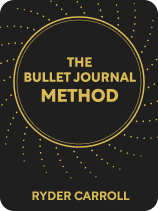

This article is an excerpt from the Shortform book guide to "The Bullet Journal Method" by Ryder Carroll. Shortform has the world's best summaries and analyses of books you should be reading.
Like this article? Sign up for a free trial here .
What is a bullet journal used for? How could a bullet journal improve your life?
Bullet journals are used for a multitude of things: brainstorming, keeping track of goals, scheduling your days and weeks. Keeping a bullet journal can also help you be more mindful and put your life in perspective.
Keep reading to learn about the benefits of keeping a bullet journal.
Why You Should Start Bullet Journaling
According to Ryder Carroll, the author of The Bullet Journal Method, despite living in a society that glorifies productivity, research has shown that we’ve become less productive with the rise of technology. Although technology has revolutionized the way we live in countless ways, it has also overloaded us with information, resources, and connections. With so many things fighting for our attention, we can’t possibly focus on all of them. As our attention scatters, our productivity plummets.
(Shortform note: Carroll doesn’t explore why we can’t focus on so many things at once, but research suggests it may be because the brain only has two hemispheres available to manage tasks. Therefore, it can only focus on two things at the same time, making juggling more than two responsibilities an impossibility.)
Bullet Journaling as a Solution
According to Carroll, the solution to this productivity problem is to use the Bullet Journal Method, an organizational tool that helps you be intentional about how you spend your time and energy. So, what’s a bullet journal used for? It’s a system that archives your life—past, present, and future—tracking not only the day-to-day details but also your choices, your actions, and how you’ve changed over time.
Carroll claims that Bullet Journaling can aid you in three areas: getting organized, living in the present moment, and finding clarity on what’s important to you. Let’s discuss each of these in more detail.
1. Get Organized
According to Carroll, one of the main benefits of the Bullet Journal Method is that it can help you get organized by providing a single outlet to declutter your mind.
(Shortform note: This benefit of Bullet Journaling is arguably important because when we fail to stay organized, psychologists say we can experience consequences such as decreased subjective well-being, poorer eating habits and mental health, and less efficient thinking and visual processing.)
Additionally, because the method utilizes a notebook, it offers flexibility that technology can’t. Whereas tech tools either have an excess of features or narrow functionality, a notebook is customizable to your specific organizational needs.
(Shortform note: The excess of features in tech tools that Carroll refers to is a common phenomenon in product design called “feature creep” or “scope creep.” In an effort to create the best product and please the widest audience, designers sometimes unintentionally overcomplicate a product by adding too many features. Fortunately, just as Carroll describes, feature creep isn’t a problem in Bullet Journaling, as only you are in charge of the journal’s design and use.)
2. Live in the Present
Another primary benefit of the Bullet Journal Method, according to Carroll, is that it encourages you to slow down and focus on the present moment by requiring you to write by hand. Because handwriting is less efficient than typing or dictating, it forces you to pay closer attention to what you’re writing and therefore changes the way you engage with what you’re writing about, whether that’s your thoughts or the world around you.
(Shortform note: Handwriting doesn’t just change your engagement with what you’re writing—it increases it. According to research, the act of writing by hand activates more complex neural connections than typing. Furthermore, researchers say that the precise movements involved in writing by hand benefit the brain’s learning processes.)
3. Find Clarity
According to Carroll, a final fundamental benefit of the Bullet Journal Method is that it helps you determine what’s important to you by encouraging a regular habit of introspection. In particular, by using your journal to track your experiences and actions over time, you can reflect on your life and clarify what matters to you—for example, the tasks you find most fulfilling. Once you’ve found that clarity, the method can aid you in setting and working toward meaningful goals that can help you become more productive than ever before.
(Shortform note: While introspection can be beneficial, it has some potential pitfalls. According to psychologists, if you don’t practice introspection in the right way, it can negatively impact your mental health. Specifically, if introspection becomes an obsessive habit, it can cause stress, anxiety, and depression.)

———End of Preview———
Like what you just read? Read the rest of the world's best book summary and analysis of Ryder Carroll's "The Bullet Journal Method" at Shortform .
Here's what you'll find in our full The Bullet Journal Method summary :
- A comprehensive guide to using the Bullet Journal Method
- How to maintain a journaling practice that can improve your overall quality of life
- How to extend the method beyond productivity to a practice in mindfulness






